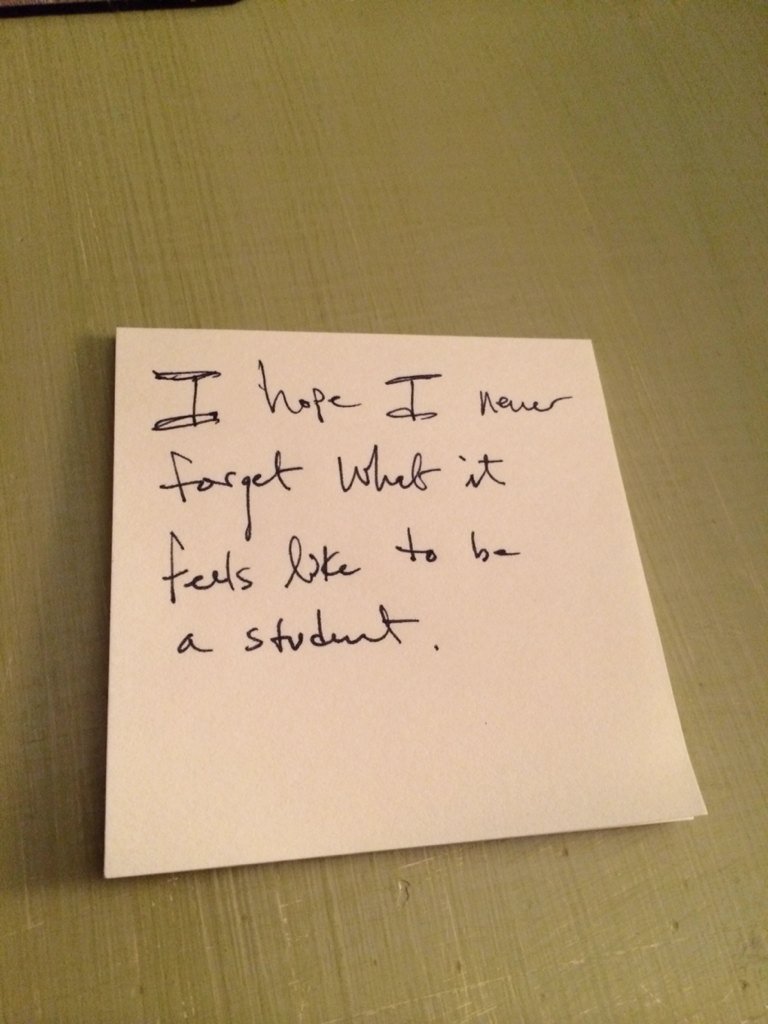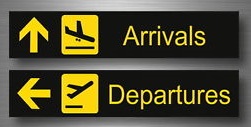These were the slides I shared with my 9th grade life skills students on the first day of class this year.
I am teaching them life skills and I genuinely wanted their input...what did they see as the non-negotiable skills they'd need to lead a fulfilling life?
Their responses stunned me.
While each of the three groups of students articulated it differently, they all landed on the reality that one student described as
"Um, I guess it seems like all of our goals [including relationships, offspring, careers, etc.] have to do with how we treat people. Isn't a fulfilling life all connected to the way we are with others?"
This was so simply put, but so beautiful.
Isn't that the case with many things? The simplest ones often end up being the most beautiful.
---------------------
Two weeks later I introduced them to a new exercise. It was about our core values.
The most important person in our relationships with others, I suggested, is the one we have with ourselves.
In Act I, Scene III of Hamlet, Polonius quips,
This above all- to thine own self be true,
And it must follow, as the night the day,Thou canst not then be false to any man.
And so it was that my students embarked on an exercise that invited them to think about the people who had impacted them, and the experiences they'd had losing track of time.
What were you doing?
Who were you with?
When are you your favorite version of yourself?
Next, I asked them to choose from a list of values the values that resonated most deeply with each of them. They chose ten, then reduced that number to the three core values that were most central to their existence.
The results were incredible.
One student spoke about ABUNDANCE.
"Was that even on the list?" a classmate asked.
"Yeah, they're alphabetical. It was first." Then, the student paused. "And can I just say that I don't mean I value abundance as in I want to have the most; instead, it's that I recognize that there is enough already and I just value the fight to ensure that everyone has a piece of the pie."
Another student spoke about CONFRONTATION as a value and their frustration with people who "let me have my way without digging in and debating me about my beliefs and ideas." It reminded me of Steve Jobs' contention that he needed to surround himself with "lions" who would challenge him and question his every move and insight. He realized that he, himself, was a lion, and he needed to be checked to yield the best results.
My student realized this, too.
Another student wrote TRADITION, LOYALTY, HONOR as their three. Their classmates were in awe. They didn't see their classmate this way...but that didn't matter. They understood their values now and it changed the way they treated them.
See, understanding our values isn't just about ourselves. It's also about the people we lead; but it's also about the people we follow--those who inspire us. It's about our families and role models who have led by example, who have passed down their values as well.
And that's where the beauty of discussing values in the classroom comes in. Our school is committed to the partnership between families and the school, and discussing values invites these elements of our shared mission and unified intention: we all desire to help students succeed. Families want this and so do educators. But we also all want our children to grow up to be fulfilled, and to lead meaningful lives.
I only get to be these students' teacher for one year.
My life skills classes meet 22 times this year.
That's less than 24 hours of time.
They get to spend their entire lives with themselves. Their families get to be their families forever. Their parents are always their parents. I will one day be their "former teacher" or their "8th grade teacher."
So what is the impact of a conversation about values?
Well, I don't know whether we can definitively say what the impact is right now. We might need to wait until my students are 40.
What I do know is this: during parents' night for my kindergartener last week, the teacher indicated that there are two goals for every kindergartner. They hope that by first grade each child will have a friend (and know how to make more), and they will understand themselves (as people and learners).
Those are big goals for a 5 year-old, but they're beautiful goals. They're goals that we can partner with as parents...and they're goals I would love to have for my own students as well.
And making friends and knowing oneself? Maybe those are the things we need to learn this year.
The world needs more friends and more self awareness, too.
You know what else the world needs, though?
My ninth grade students.


















